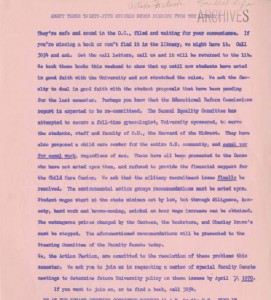OU Libraries Timeline: students
1959: Temporary library
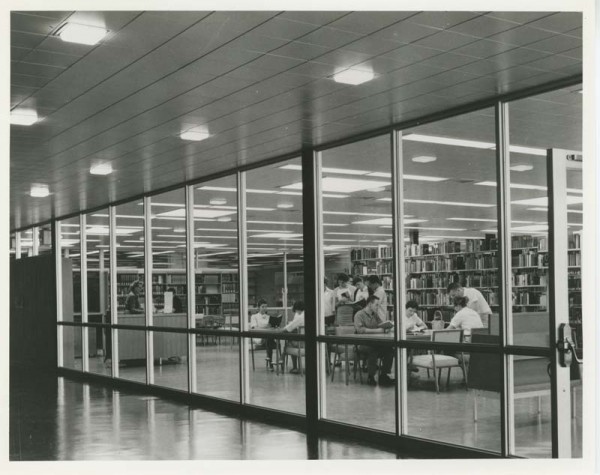 Temporary library quarters were set up at North Foundation Hall. Books were available with 'complete freedom' (no restrictions on number that could be borrowed, no due dates, no fines, and, initially, 24 hour library access). Material was shelved alphabetically to make it available before it was catalogued.
Temporary library quarters were set up at North Foundation Hall. Books were available with 'complete freedom' (no restrictions on number that could be borrowed, no due dates, no fines, and, initially, 24 hour library access). Material was shelved alphabetically to make it available before it was catalogued.
See timeline of ...
1961: Kresge Library Opens
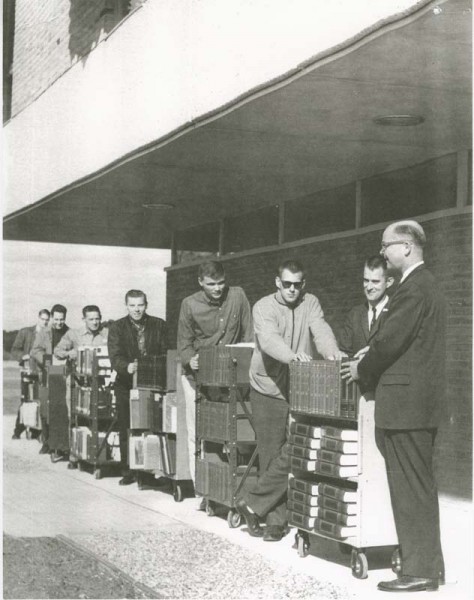
October 27, 1961: Library contents moved from North Foundation Hall to the new Kresge Library building. Students helped by pushing books on book trucks over from the former library at North Foundation Hall, and by loading and unloading books. All materials were moved in three and a half hours. The building was officially dedicated the following spring. View the program for the dedication.
1965: Library learning
A library information test was taken by 1,000 Oakland University students during orientation week. As a result, 230 students signed up for a short course to prepare them for learning at the library, which was taught two days a week for three weeks.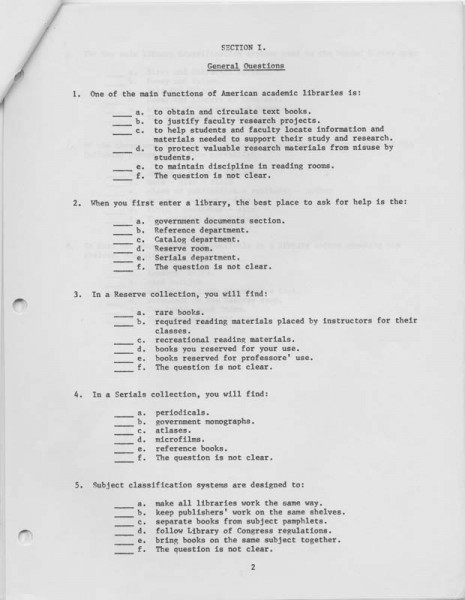
See timeline of ...
1965: Student library committee
The Student Library Committee of the Kresge Library began operation.
See timeline of ...
1968: Matilda R. Wilson fund established
The Matilda R. Wilson Memorial Fund for the purchase of reference and bibliographic works was established by the students of Oakland University. Students agreed to a slight increase in fees in order to support the library's reference collection.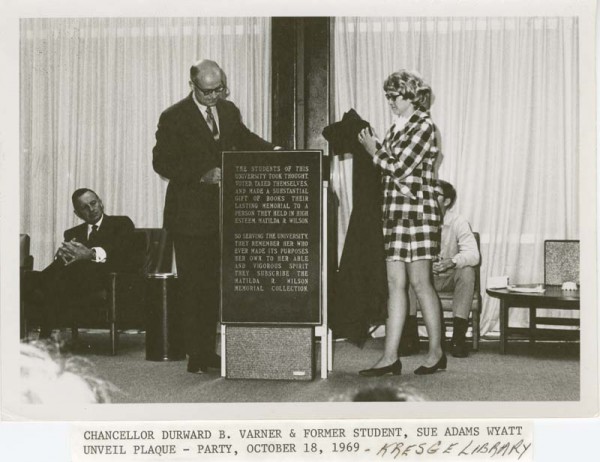
See timeline of ...
1985: Term paper clinic
The library offered a 'Term Paper Clinic' (half-hour one-on-one meetings with a librarian) to assist undergraduates with their research and writing.
See timeline of ...
Photos courtesy of the Oakland University Archives.
In providing access to its collections, the Oakland University Archives and Special Collections acts in good faith. Despite the safeguards in place, we recognize that mistakes can happen. If you find on our website or in a physical exhibit material that infringes on an individual’s privacy, please contact us in writing to request the removal of the material. Upon receipt of valid complaints, we will temporarily remove the material pending an agreed solution.





